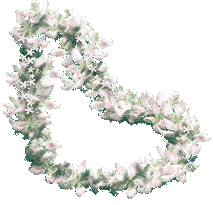|
From Samuel Elbert's preface: Elbert, Samuel H. & Pukui, Mary Kawena, HAWAIIAN GRAMMAR, University of Hawai`i Press, Honolulu, 1979: "May a short personal note be injected here? The Grammar is a result of two longish spans of years dedicated to Oceanic languages. Kawena Pukui, at her birth in 1895, was given by her haole father to his own Hawaiian mother-in-law. Kawena's mother, Pa`ahana, mildly protested. "But haoles don't give their children to others!" "Your mother has only a few more years. Let her have this child!" was the rejoinder. The grandmother knew no English and was wise in her ancestors' lore; though a devout Christian, she made silent little prayers to her ancestors' gods. Kawena had the opportunity to master Hawaiian and to learn something of the old culture, and she has been ever thankful for her father's generosity and tolerance. Elbert was born in Iowa in 1907, but has been in the Pacific area since 1934. His share of the book has been accumulating forty years--Kawena's, eighty!"
"An orchid lei I give to you, to show you that my love is true. Samuel Elbert (1907-1997) Excerpts from: Wright, Walter, THE HONOLULU ADVERTISER, May 16, 1997: "Elbert was born in Iowa, but fell in love with Hawaii. Mary Kawena Pukui, a Hawaiian language expert, and Elbert created the Hawaiian Dictionary in 1957. The Dictionary is considered the "bible" in today's Hawaiian cultural and language rejuvenation. "Pukui was the source, and Elbert the vehicle who helped bring the source forward", said Puakea Nogelmeier, an assistant professor of Hawaiian language. Elbert's name was constantly linked with Pukui's: each was lauded in 1976 as a "living treasure" of Hawaii, and each in 1984 received a Baha'i award for service to humanity. It was, colleagues say, a measure of his gallantry and his respect for Pukui that he took the junior position as an author of the dictionary, with his name second to hers. When Elbert established an annual award for language and cultural studies in 1983, it was in honor of Pukui. Elbert arrived in Hawaii in 1936 and soon met Pukui, who was working as a linguist at the Bishop Museum. He collaborated with Pukui and Mo`okini on "The Pocket Hawaiian Dictionary" and "Place Names of Hawaii" and was the author of a dozen other books and many papers on language, including highly acclaimed research on remote islands of the South Pacific. For four decades, even after his retirement in 1972, Elbert was the resident authority on Polynesian languages at the University. Elbert was a professor emeritus of Pacific languages and linguistics at the University of Hawaii at Mânoa. One of his students, Esther Mo`okini ..."He felt the melody of the language and he fought to keep that melody alive". Language teacher, Alison Ledward..."He was an outsider who said, at a time when Hawaiian was not encouraged or the thing to do. He would say, "Stop - you must pay attention to Hawaiian." "
You are at: http://hawaiianlanguage.comAlternate URL: http://www.oocities.org/~olelo/ |

